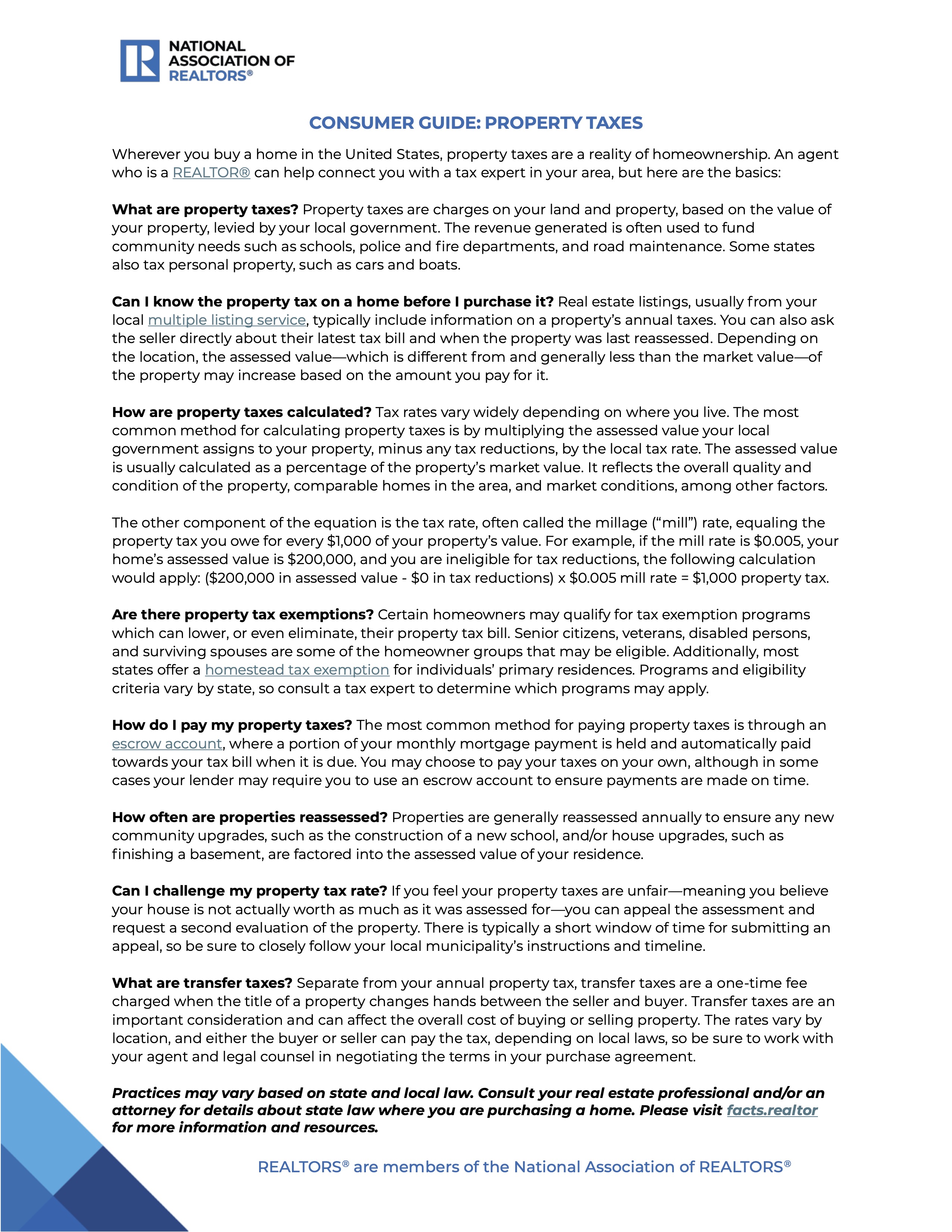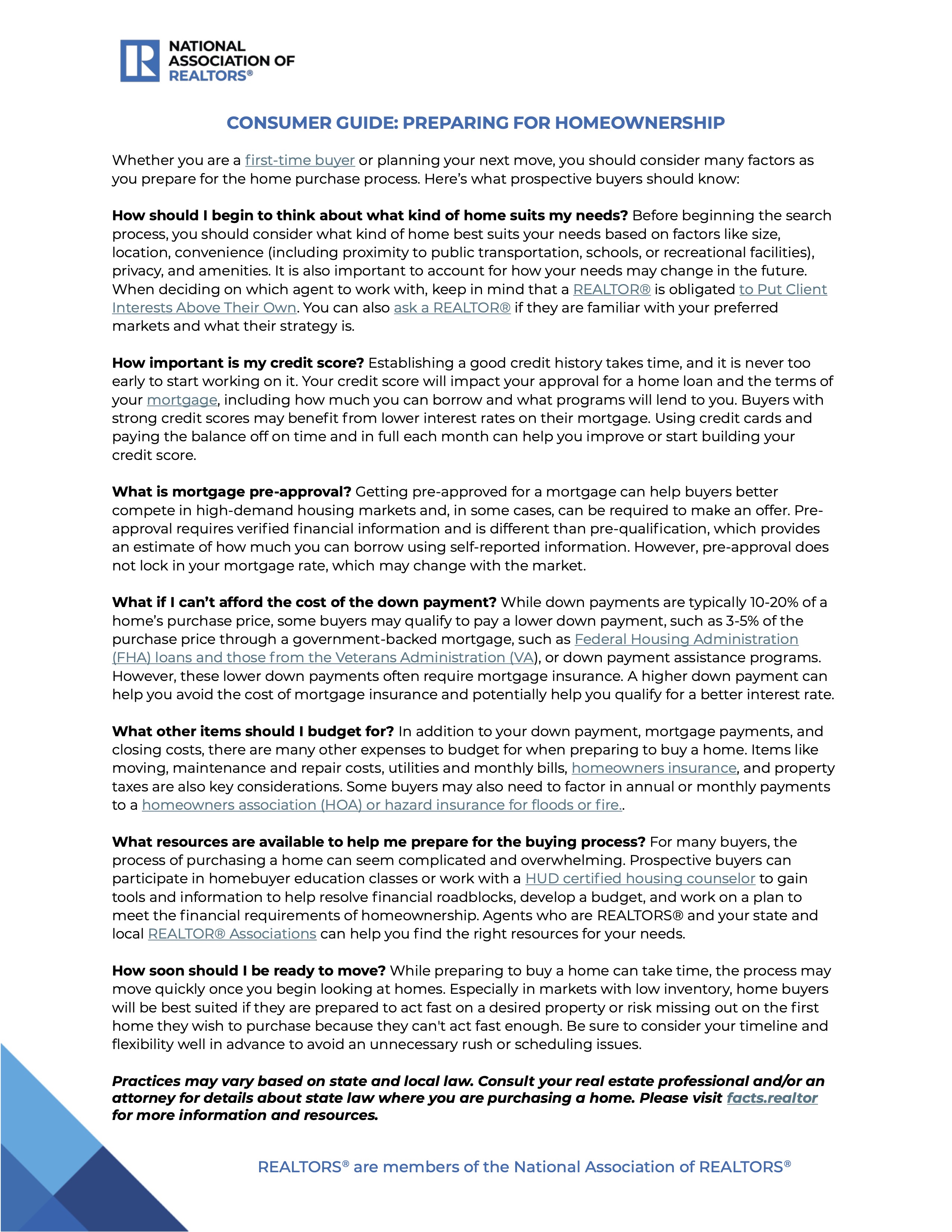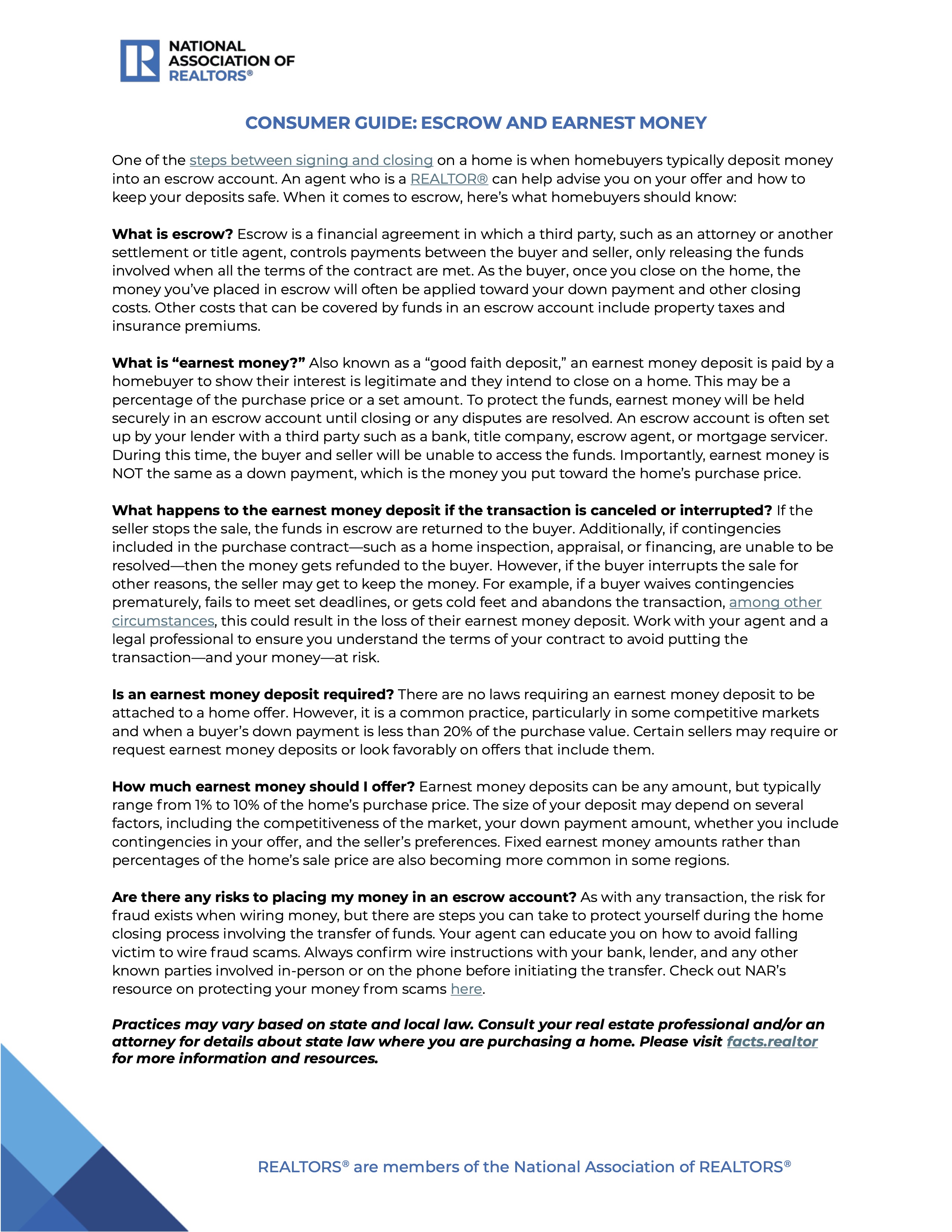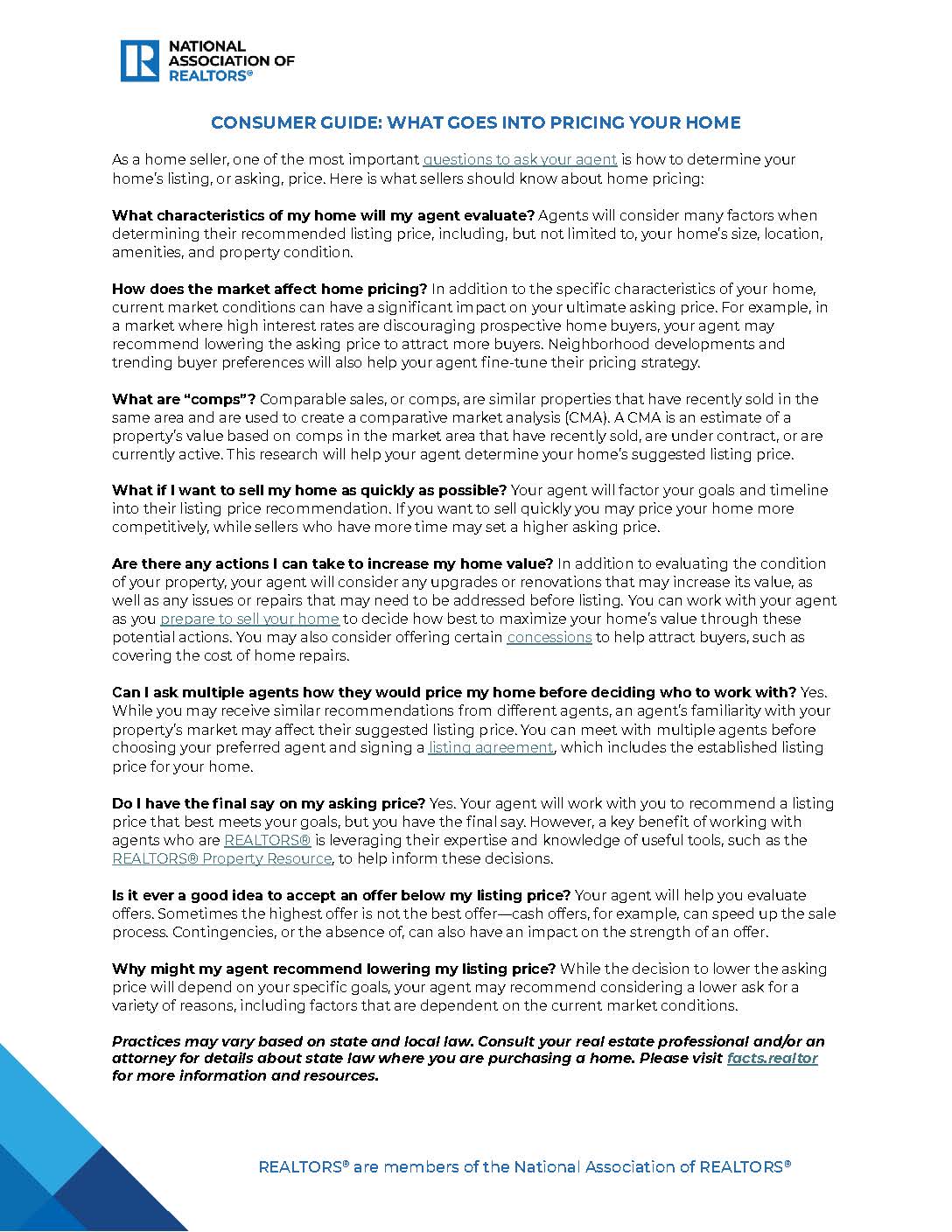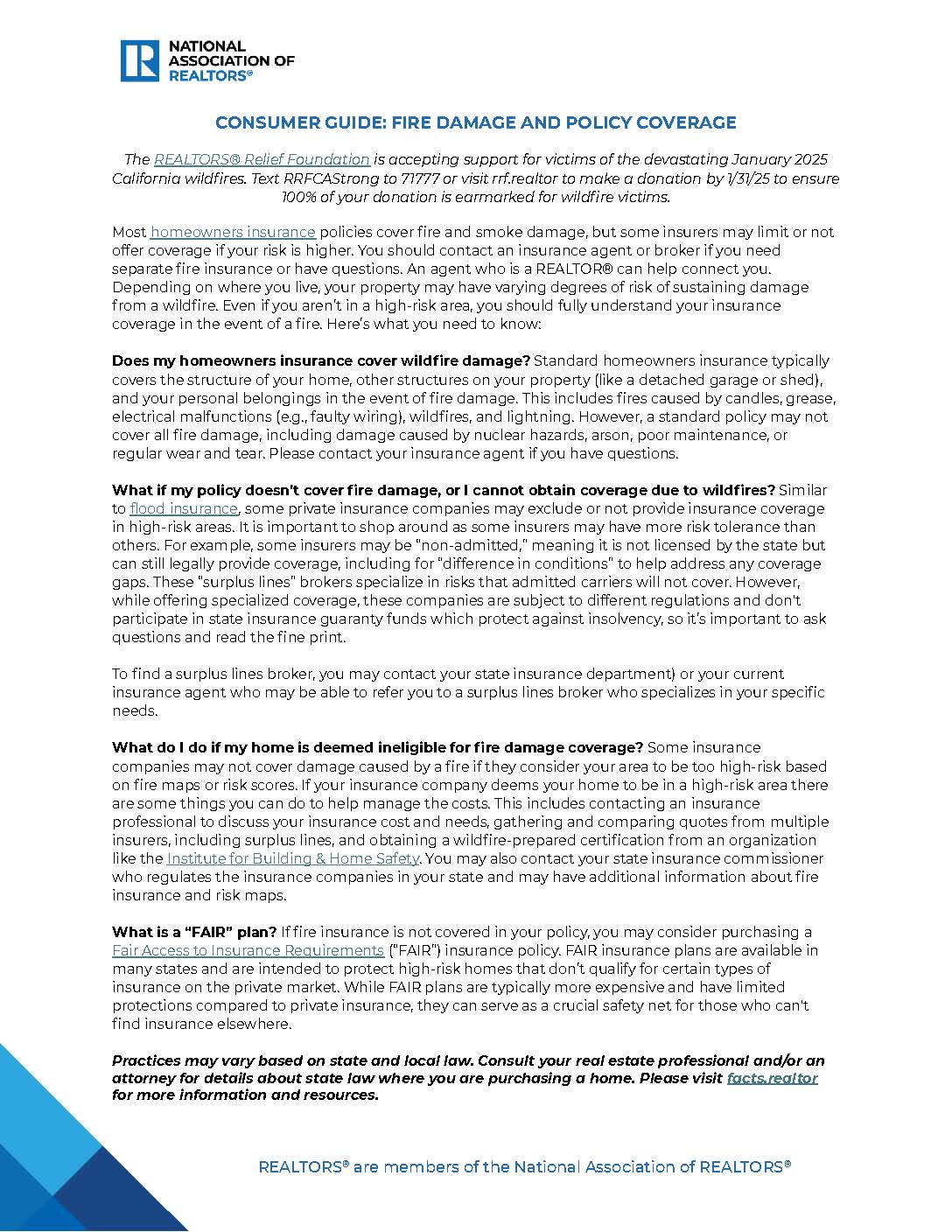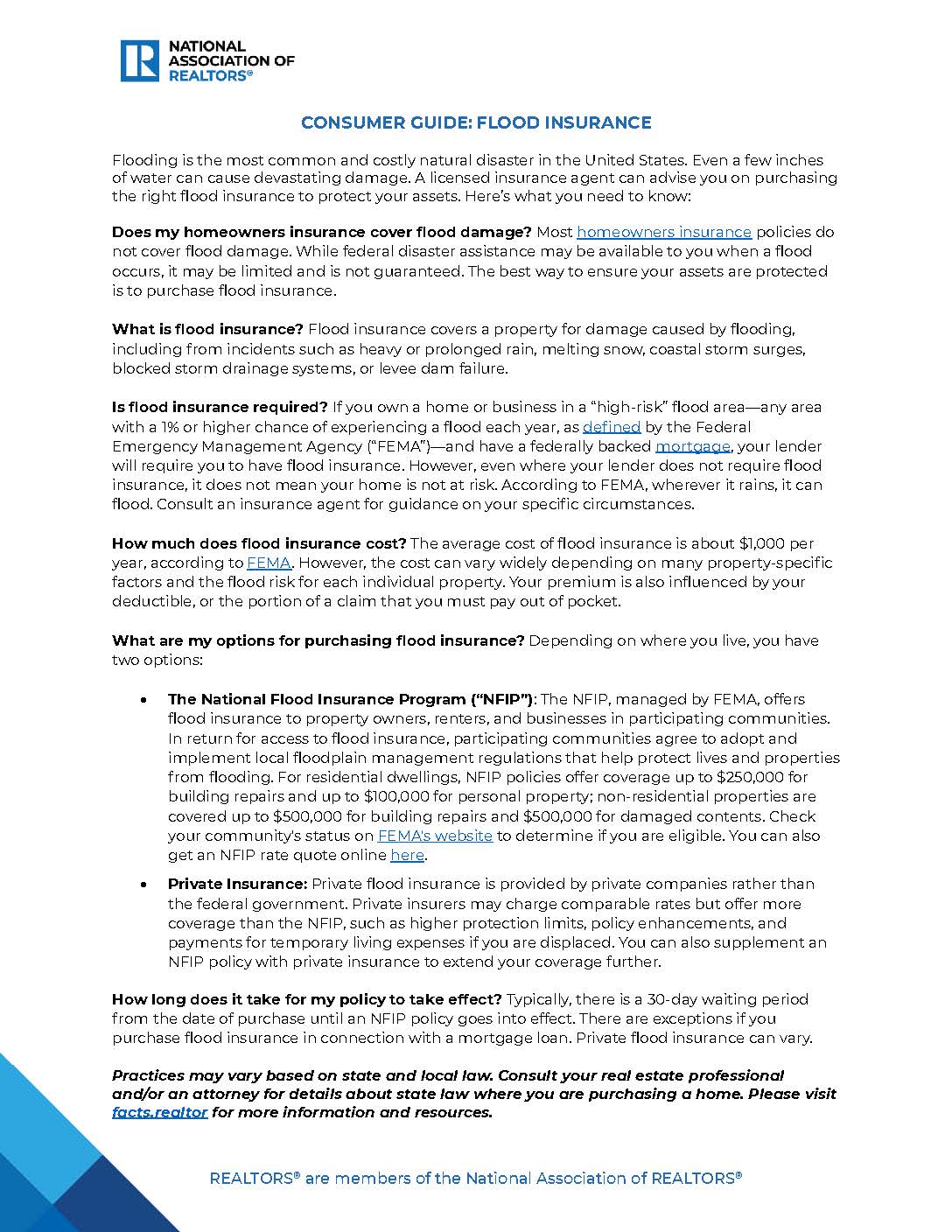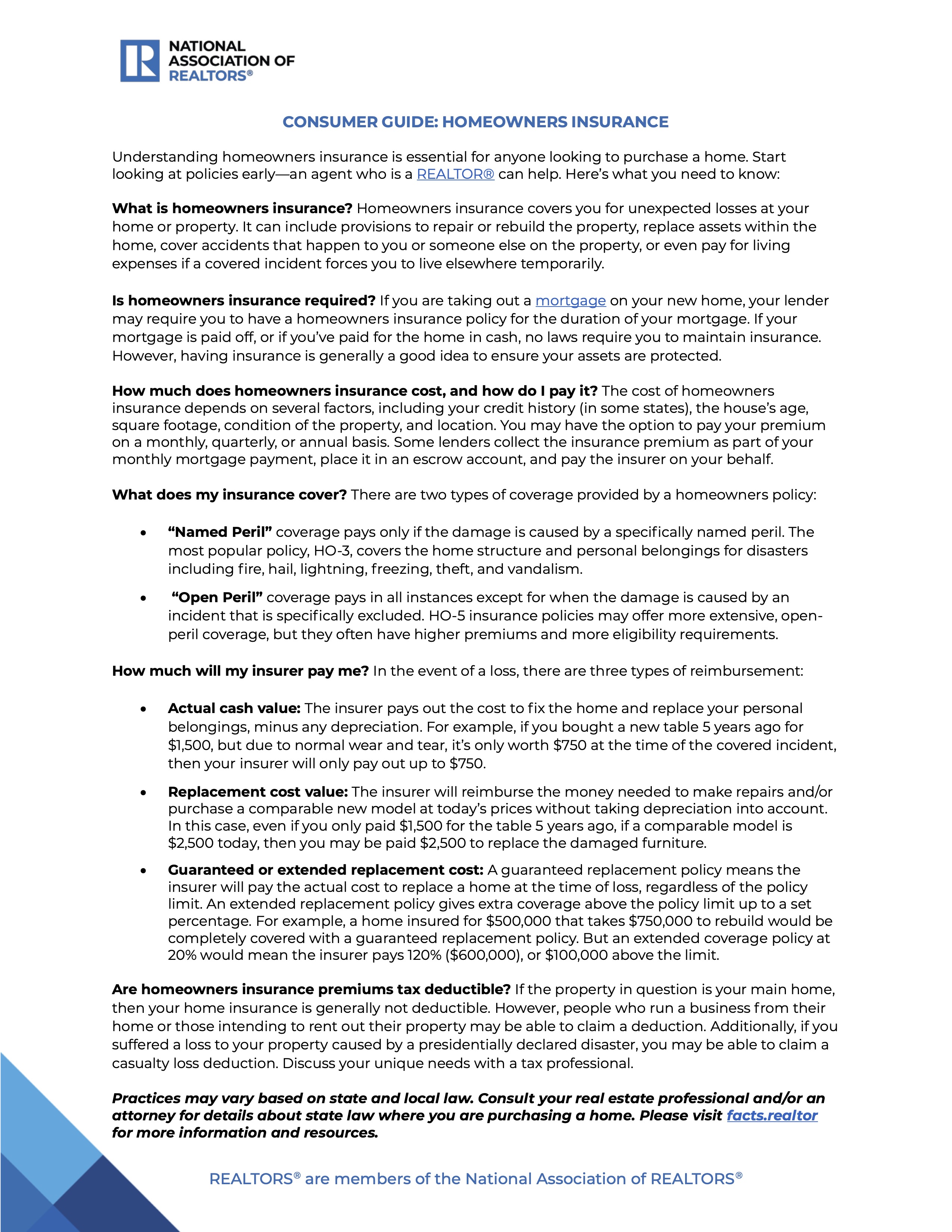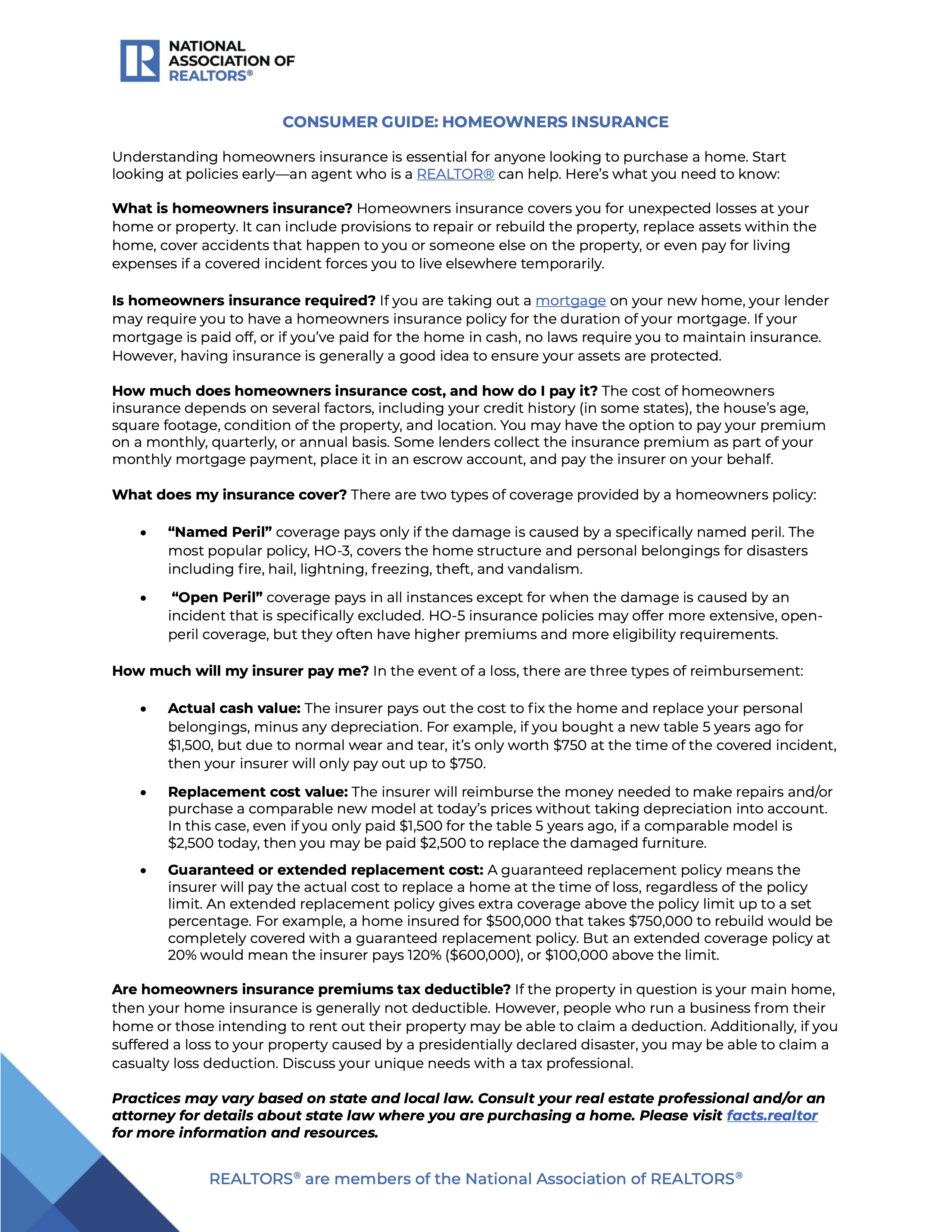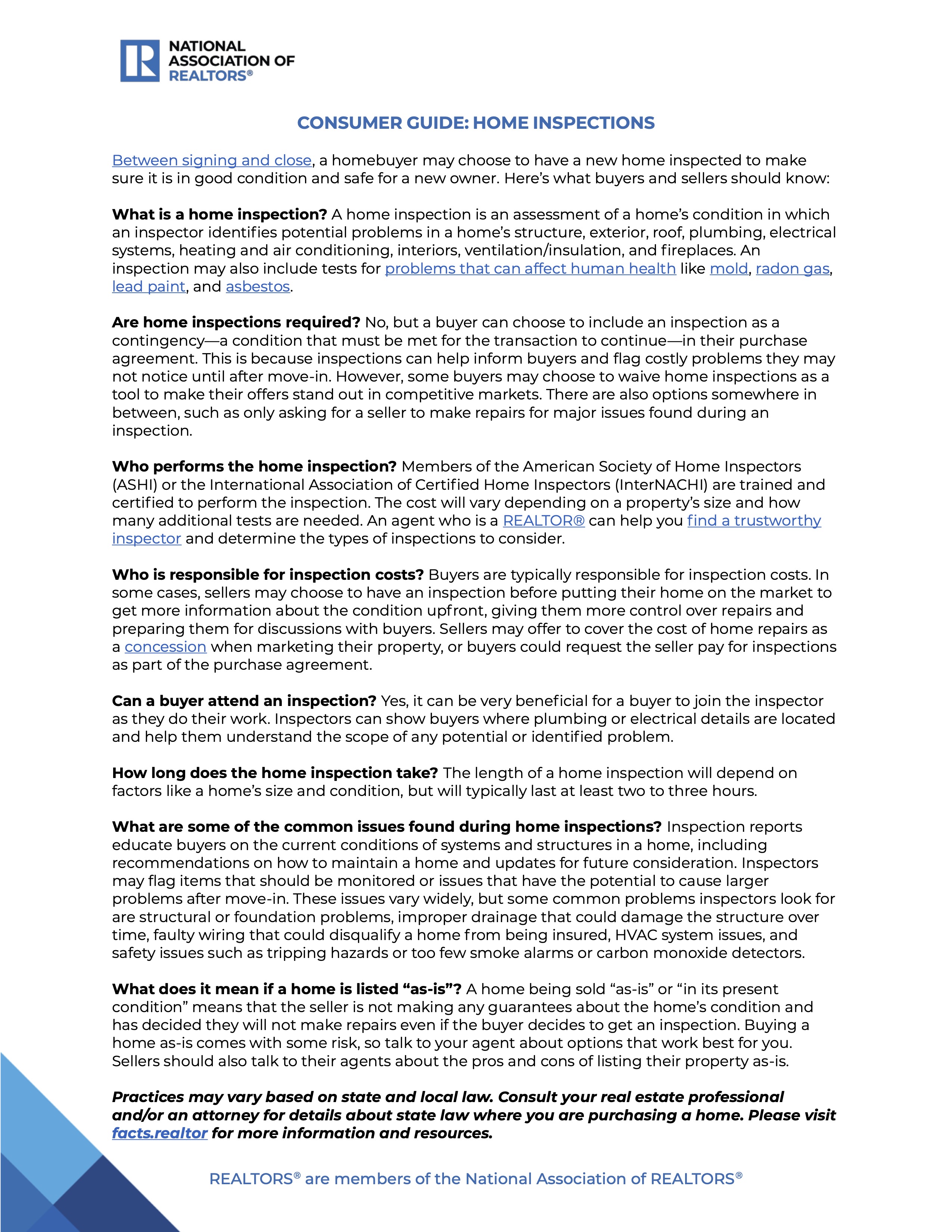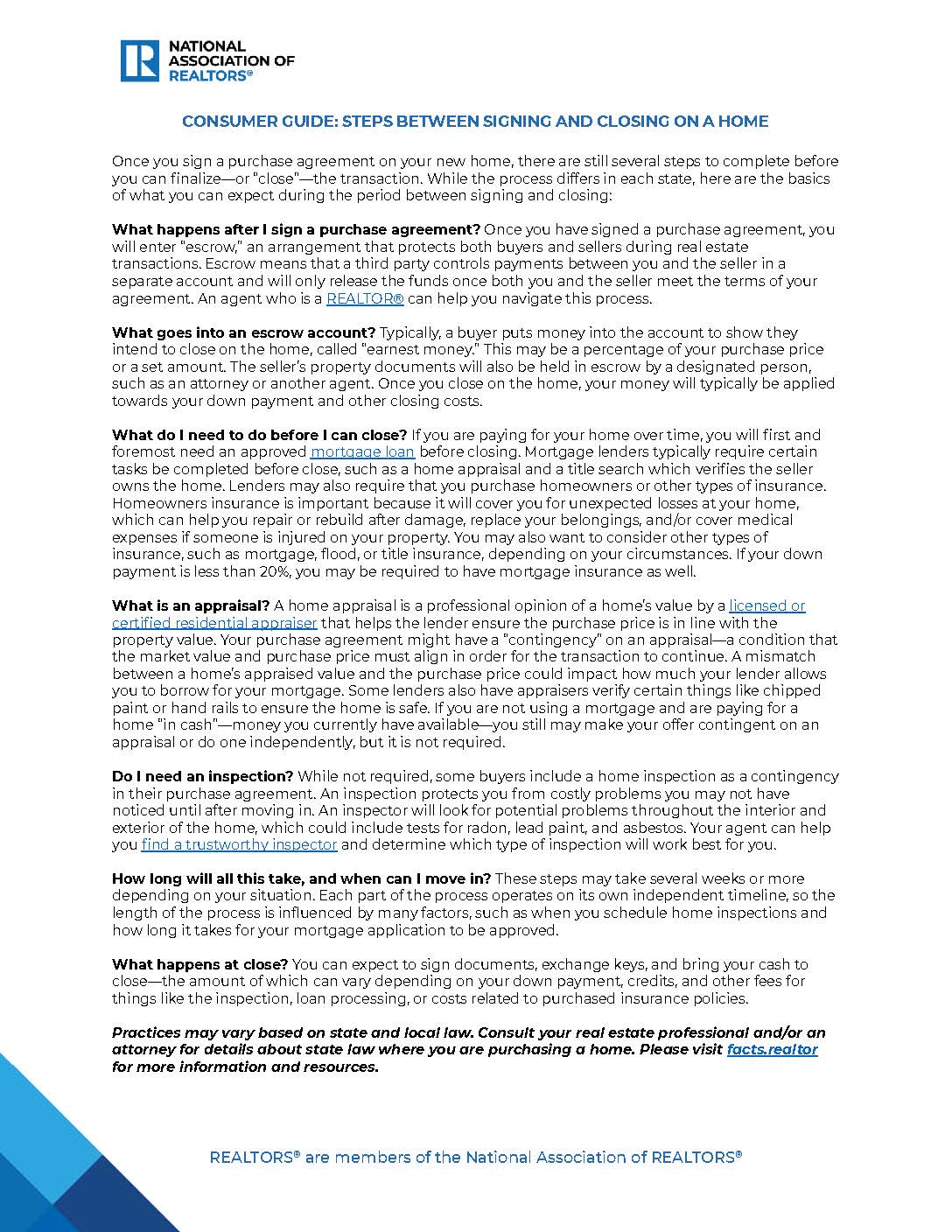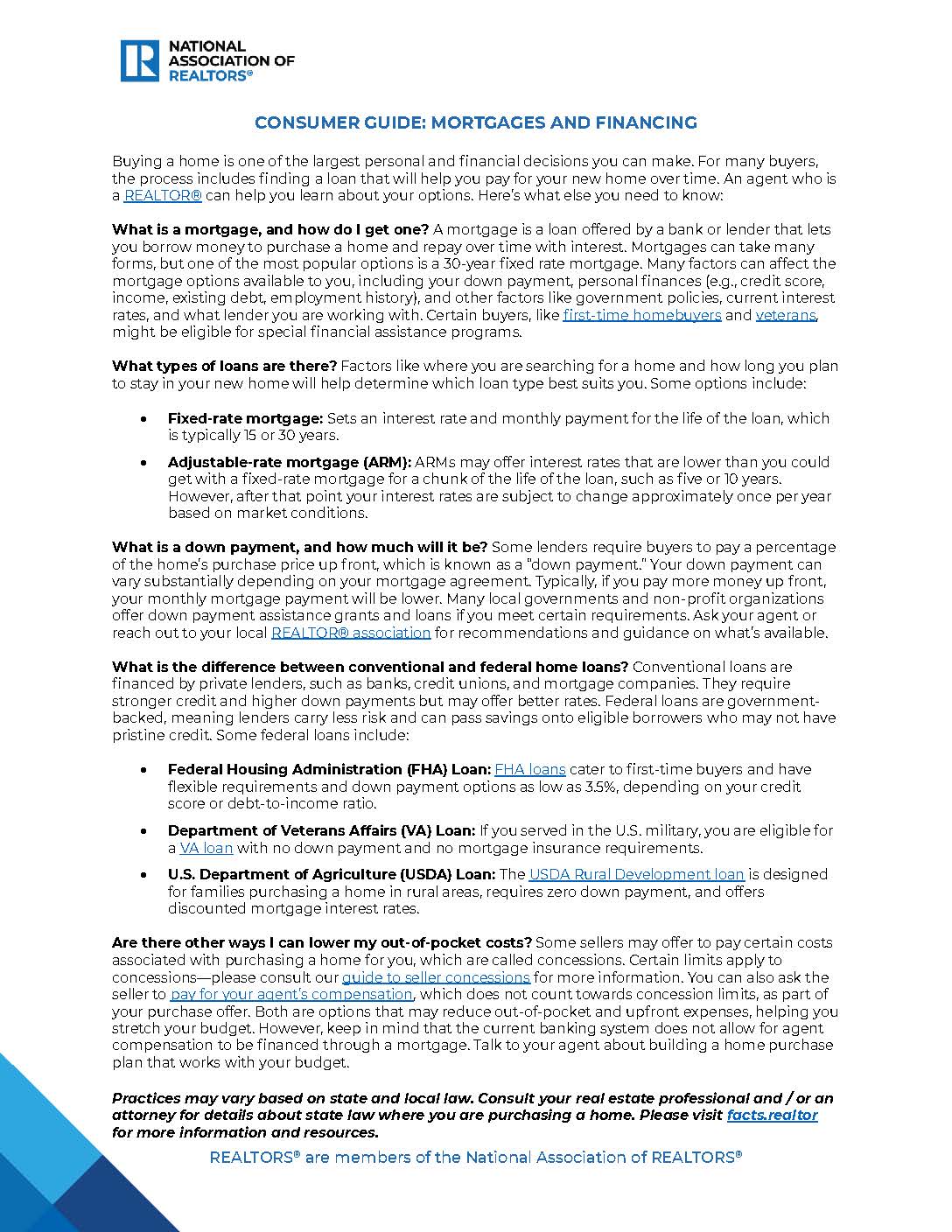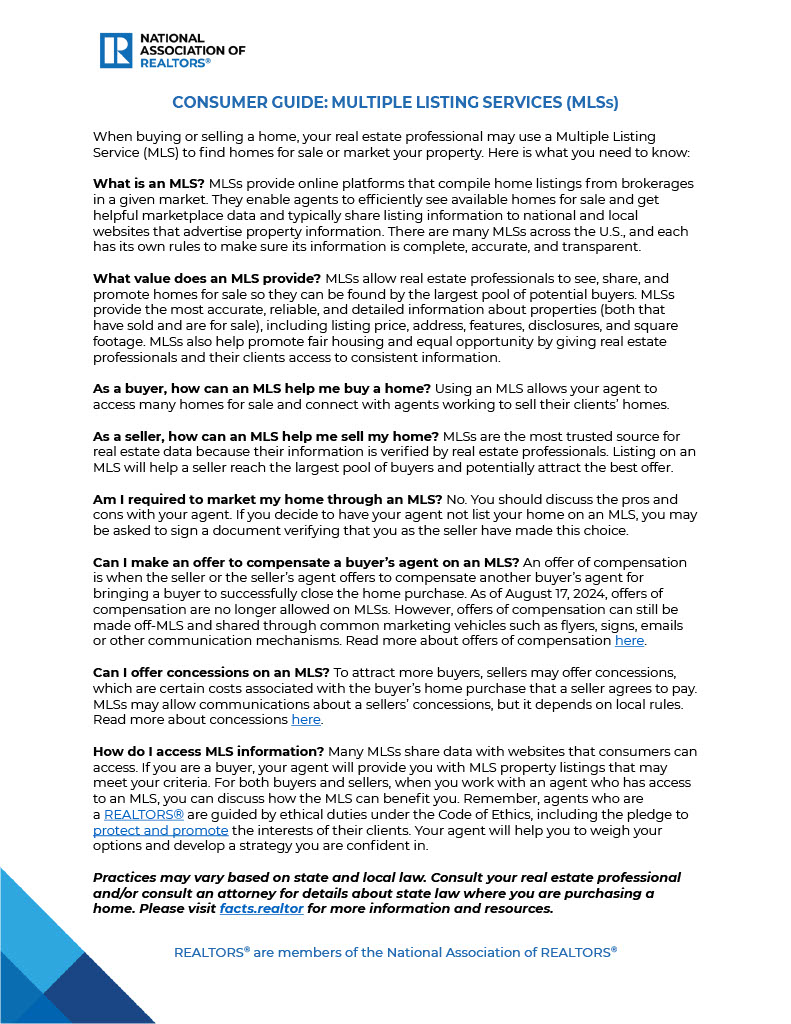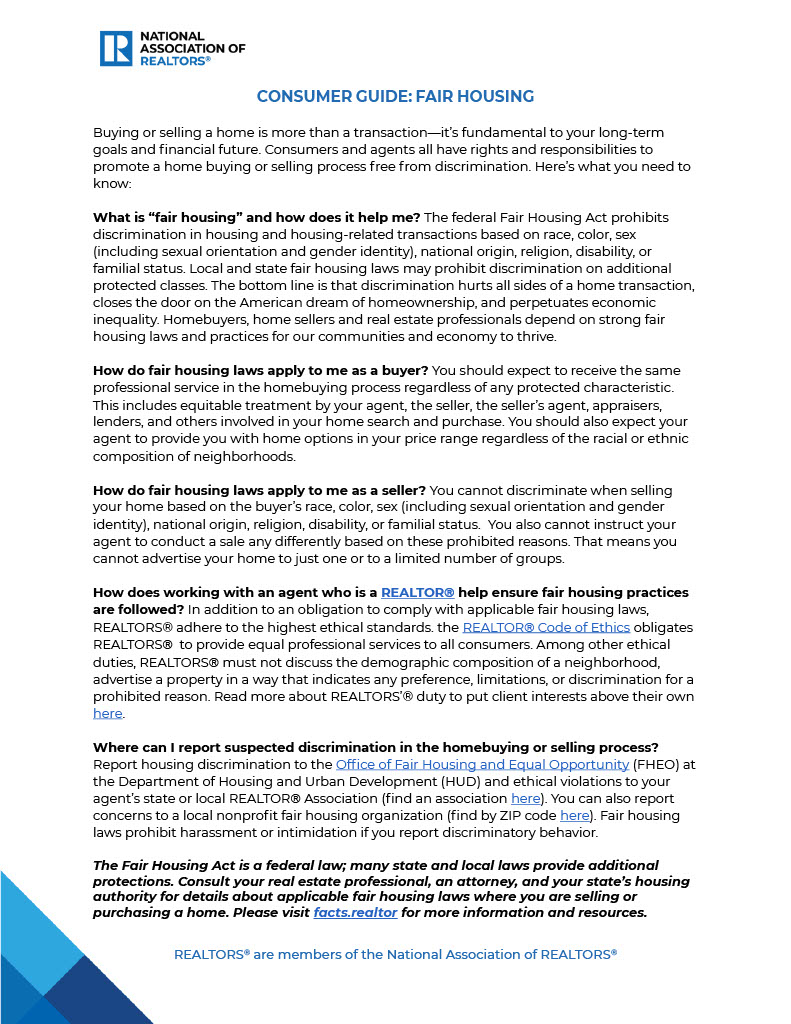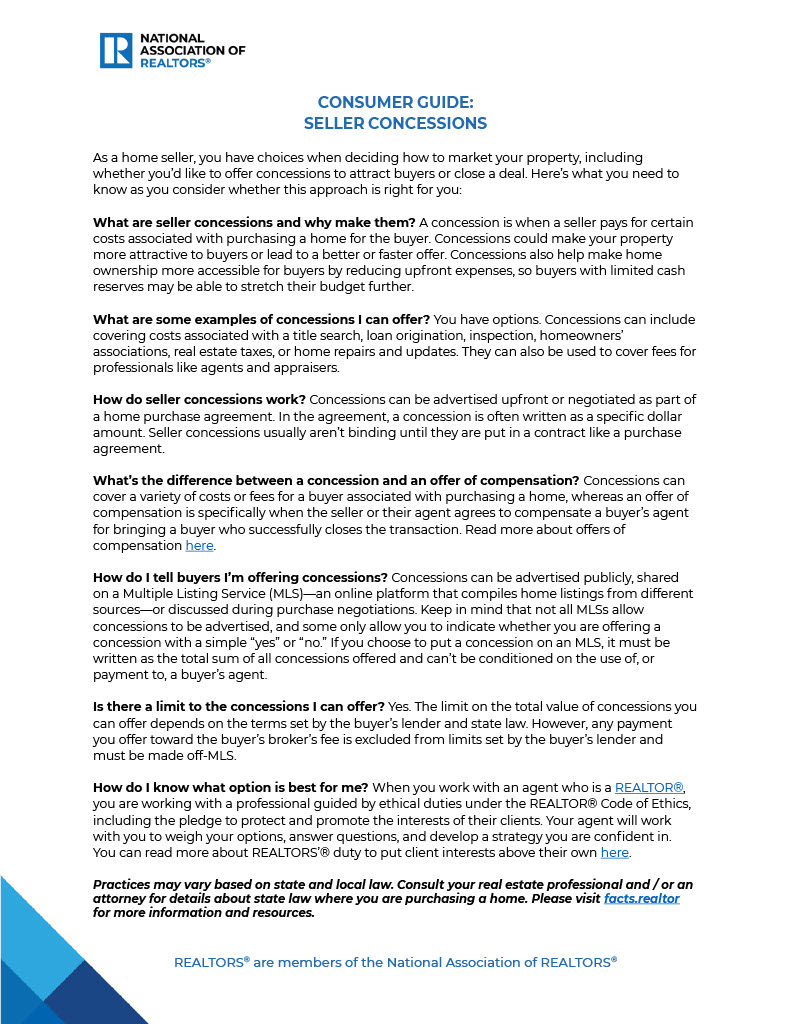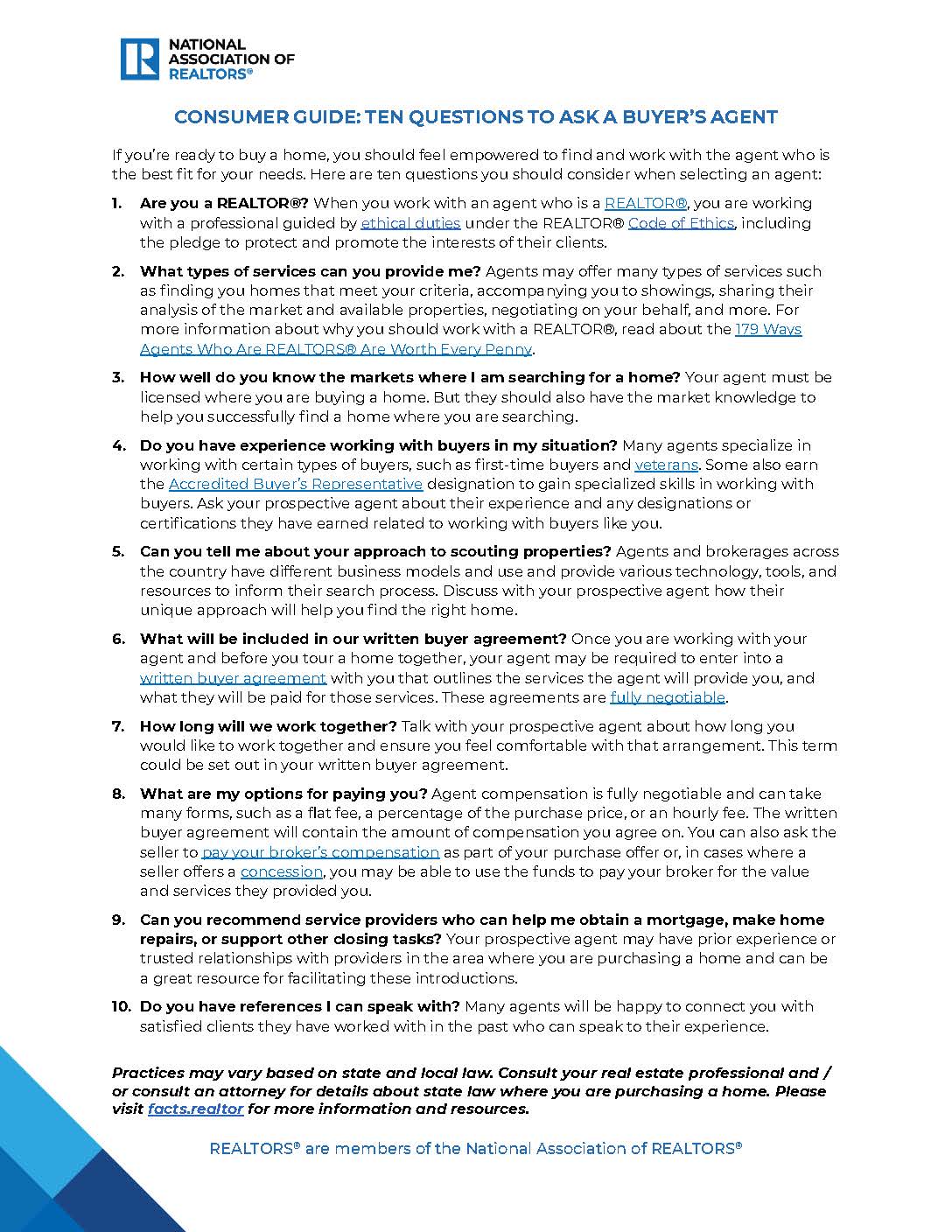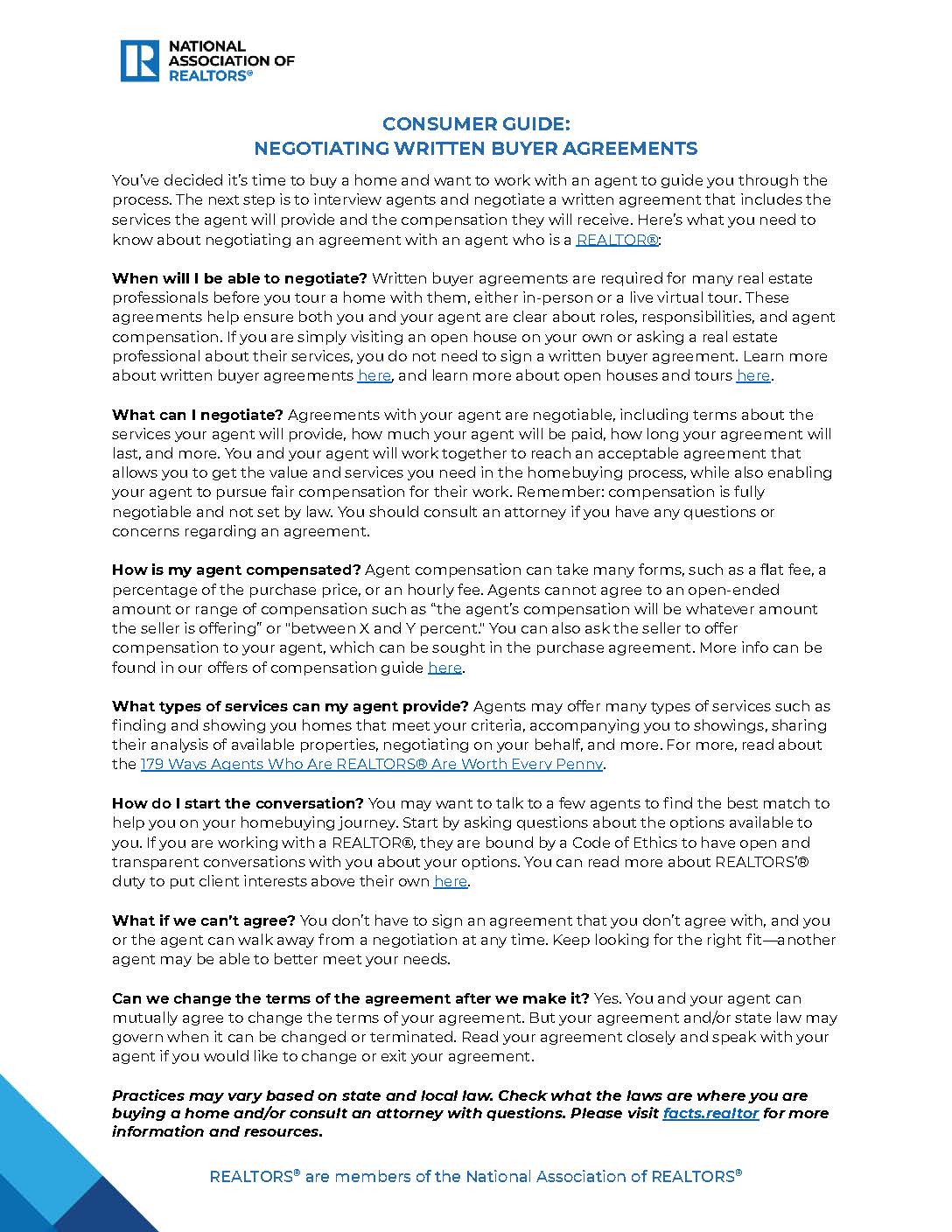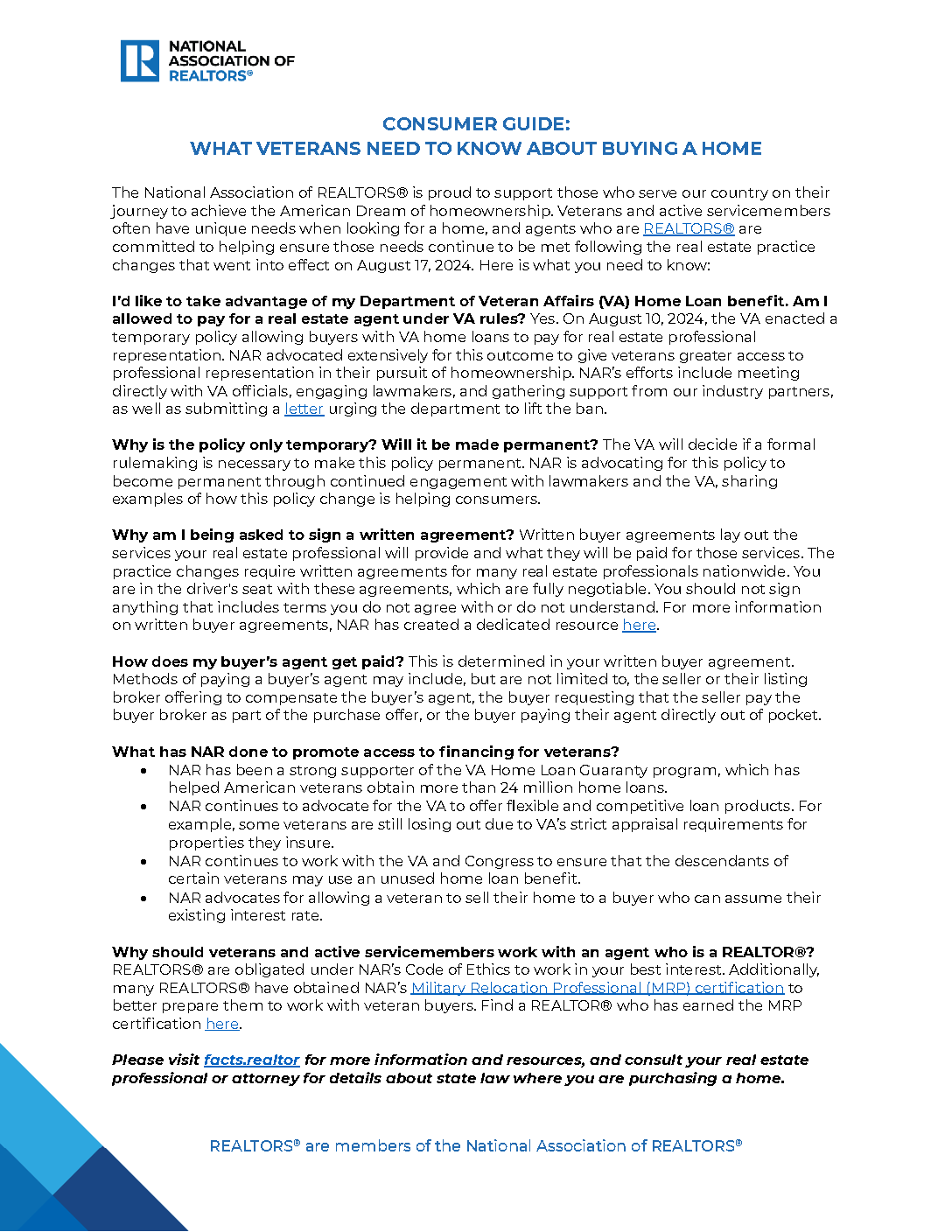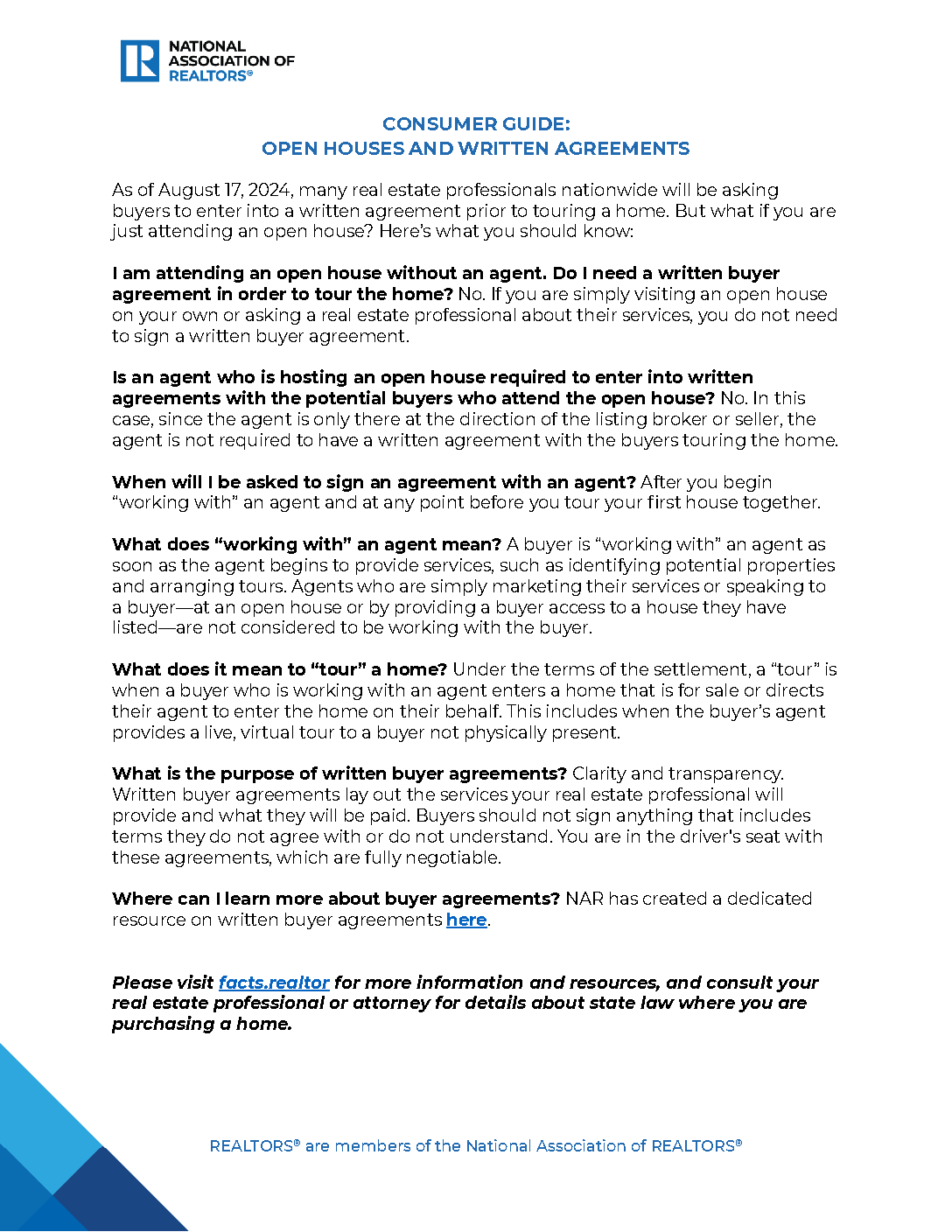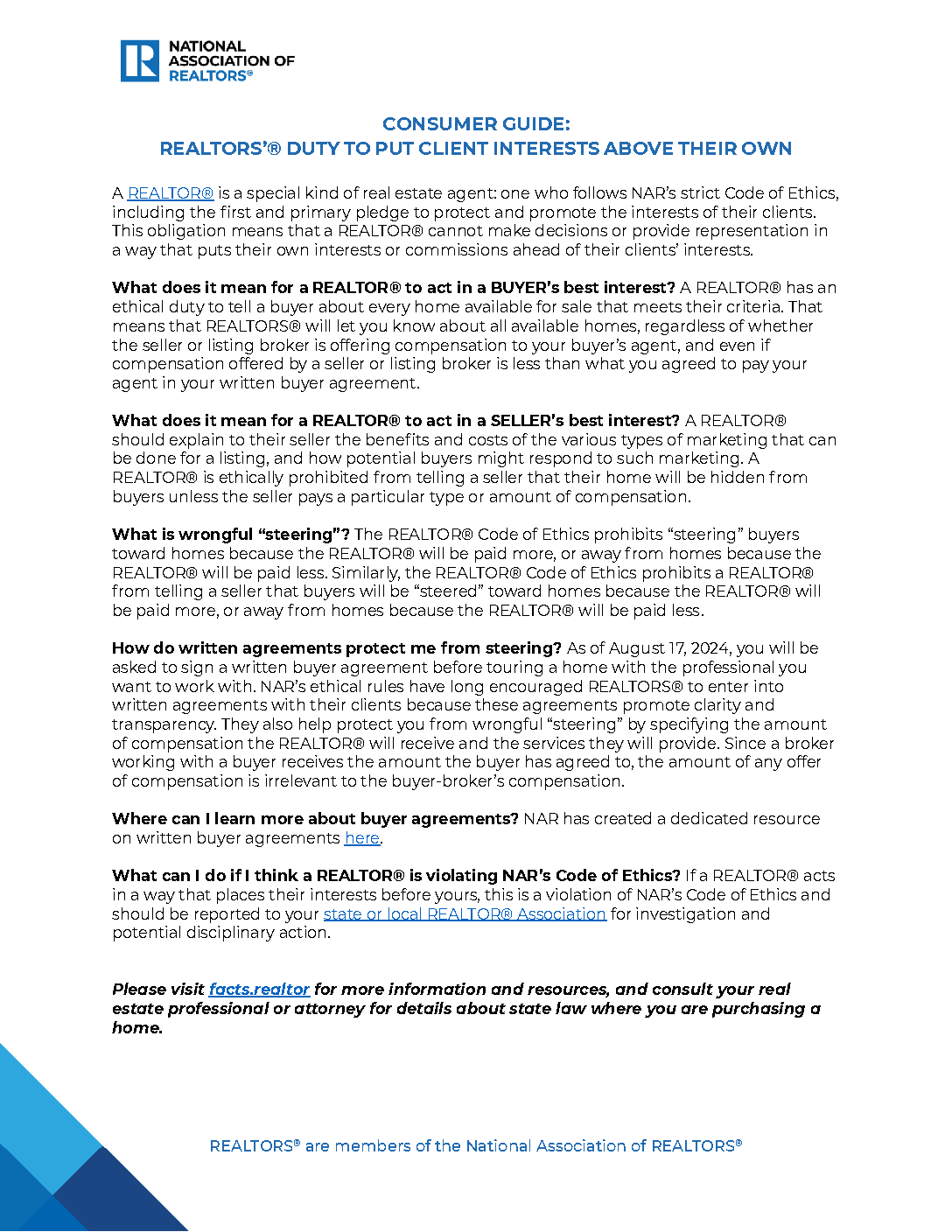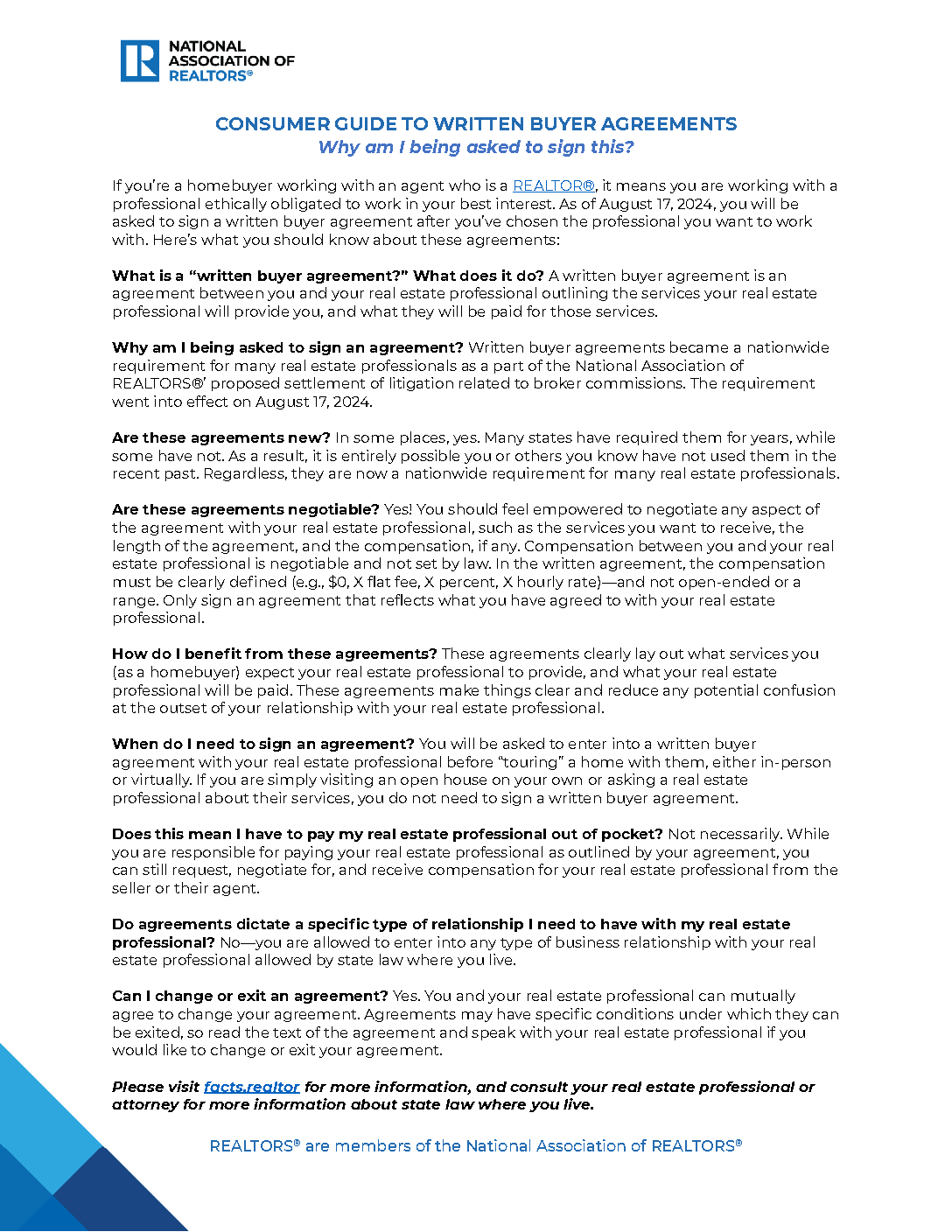Consumer Guides
A collection of guides to help you work with a REALTOR®.
Property Taxes
Wherever you buy a home in the United States, property taxes are a reality of homeownership. An agent who is a REALTOR® can help connect you with a tax expert in your area, but here are the basics.
Preparing for Homeownership
Whether you are a first-time buyer or planning your next move, you should consider many factors as you prepare for the home purchase process. Here’s what prospective buyers should know.
Escrow and Earnest Money
One of the steps between signing and closing on a home is when homebuyers typically deposit money into an escrow account. An agent who is a REALTOR® can help advise you on your offer and how to keep your deposits safe. When it comes to escrow, here’s what homebuyers should know.
Preparing to Sell Your Home
Once you decide to sell your home, you might have questions about how to prepare it for listing and viewing by potential buyers. An agent who is a REALTOR® can guide you through this process. Here are some common considerations as you prepare your home to sell.
What Goes Into Pricing Your Home
As a home seller, one of the most important questions to ask your agent is how to determine your home’s listing, or asking, price. Here is what sellers should know about home pricing.
Fire Damage And Policy Coverage
Most homeowners insurance policies cover fire and smoke damage, but some insurers may limit or not offer coverage if your risk is higher. You should contact an insurance agent or broker if you need separate fire insurance or have questions. An agent who is a REALTOR® can help connect you. Depending on where you live, your property may have varying degrees of risk of sustaining damage from a wildfire. Even if you aren’t in a high-risk area, you should fully understand your insurance coverage in the event of a fire.
Flood Insurance
Flooding is the most common and costly natural disaster in the United States. Even a few inches of water can cause devastating damage. A licensed insurance agent can advise you on purchasing the right flood insurance to protect your assets.
Appraisal Process
An appraisal is an opinion on a home’s market value that helps a lender ensure the purchase price is in line with the property value. The process is led by a licensed or certified residential appraiser—an independent third party engaged by the lender to provide a professional judgment on the home’s value. Appraisers do not represent the buyer or seller; their sole duty is to come up with a fair and accurate valuation of the property. While all appraisers follow a set of standards, appraisers who are REALTORS® have the added commitment to uphold the REALTOR® Code of Ethics. If you are financing your home purchase, you will likely be required to get a home appraisal as one of the steps between signing and close.
Homeowners Insurance
Homeowners insurance covers you for unexpected losses at your home or property. It can include provisions to repair or rebuild the property, replace assets within the home, cover accidents that happen to you or someone else on the property, or even pay for living expenses if a covered incident forces you to live elsewhere temporarily.
Understanding homeowners insurance is essential for anyone looking to purchase a home. Start looking at policies early—an agent who is a REALTOR® can help.
Home Inspection
Between signing and close, a homebuyer may choose to have a new home inspected to make sure it is in good condition and safe for a new owner. Here’s what buyers and sellers should know.
Agency and Non-Agency Relationships
When you are looking to buy or sell a home, you may hear about different types of relationships—agency and non-agency—that exist between buyers and sellers and the real estate professionals they are working with. These relationships are defined by state law and the options available to you vary widely between states, but here are the basics of what to think about.
Steps Between Signing and Closing
Once you sign a purchase agreement on your new home, there are still several steps to complete before you can finalize—or “close”—the transaction. While the process differs in each state, here are the basics of what you can expect during the period between signing and closing.
Mortgages and Financing
Buying a home is one of the largest personal and financial decisions you can make. For many buyers, the process includes finding a loan that will help you pay for your new home over time. An agent who is a REALTOR® can help you learn about your options.
Buying Your First Home
So, you’re ready to find your first home. But where do you begin? And what resources are available to help you? Here’s what you need to know as you embark on your homeownership journey.
Multiple Listing Services (MLSs)
When buying or selling a home, your real estate professional may use a Multiple Listing Service (MLS) to find homes for sale or market your property
Fair Housing
Buying or selling a home is more than a transaction—it’s fundamental to your long-term goals and financial future. Consumers and agents all have rights and responsibilities to promote a home buying or selling process free from discrimination
Ten Questions To Ask A Seller’s Agent
If you’re ready to sell your home, you should feel empowered to find and work with the agent who is the best fit for your needs. Here are ten questions you should consider when selecting an agent.
Seller Concessions
As a home seller, you have choices when deciding how to market your property, including whether you’d like to offer concessions to attract buyers or close a deal. Here’s what you need to know as you consider whether this approach is right for you.
Q&A for Home Sellers
Stay informed about important changes in real estate: Q&A for Home Sellers explains recent updates affecting seller fees and relationships with REALTORS®. Learn about new fee structures, understand compensation options for buyer's agents, and discover how these changes affect your home sale. This guide offers clear answers about new industry changes, helping you make informed decisions as you prepare to sell your home.
Q&A for Home Buyers
Stay informed about important changes in real estate: Q&A for Home Buyers explains recent updates affecting home buyers and their relationships with REALTORS®. Learn about new Buyer Representation Agreements, understand how agent partnerships work, and discover what these changes mean for your home search. This guide offers clear answers about new industry changes, helping you make informed decisions as you look for your next home.
10 Questions to Ask Buyers Agent
If you’re ready to buy a home, you should feel empowered to find and work with the agent who is the best fit for your needs. Here are ten questions you should consider when selecting an agent.
Negotiating Written Buyer Agreements
You’ve decided it’s time to buy a home and want to work with an agent to guide you through the process. The next step is to interview agents and negotiate a written agreement that includes the services the agent will provide and the compensation they will receive. Here’s what you need to know about negotiating an agreement with an agent who is a REALTOR®.
What Veterans Need To Know About Buying A Home
The National Association of REALTORS® is proud to support those who serve our country on their journey to achieve the American Dream of homeownership. Veterans and active servicemembers often have unique needs when looking for a home, and agents who are REALTORS® are committed to helping ensure those needs continue to be met following the real estate practice changes that went into effect on August 17, 2024.
Open Houses And Written Agreements
As of August 17, 2024, many real estate professionals nationwide will be asking buyers to enter into a written agreement prior to touring a home. But what if you are just attending an open house?
REALTORS’® Duty To Put Client Interests Above Their Own
A REALTOR® is a special kind of real estate agent: one who follows NAR’s strict Code of Ethics, including the first and primary pledge to protect and promote the interests of their clients. This obligation means that a REALTOR® cannot make decisions or provide representation in a way that puts their own interests or commissions ahead of their clients’ interests.
Why Am I Being Asked To Sign A Written Buyer Agreement?
If you’re a homebuyer working with an agent who is a REALTOR®, it means you are working with a professional who is ethically obligated to act in your best interest. As of August 17, 2024, you will be asked to sign a written buyer agreement after you’ve chosen the professional you want to work with.

